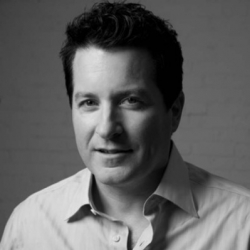Calvin Ayre, the founder of Bodog.com, is not hiding from the U.S. Justice Department. The DOJ charged in 2012 that the flamboyant Internet mogul with breaches of the 1961 Wire Act and money laundering.
How Ayre Was Indicted
In 2012, a U.S. grand jury indicted Calvin Ayre on the same charges. Ayre and his accountant, James Philip, were indicted along with Bodog Controller and e-Commerce Chief David Ferguson. Media buyer Derrick Malon also was indicted in the proceedings. All four men were ordered to stand trial for alleged crimes from 2005 to 2012.
None of the men appeared to be put on trial. Therefore, Calvin Ayre and the others have been ordered again to appear in court to stand trial. U.S. Attorney Richard Kay told the judge assigned to the case that he was seeking “to try to find a resolution that will not require extradition of the defendants. In the meantime, I am pursuing extradition.”
Living in Antiqua
At present, Calvin Ayre lives at his home in Antiqua. The nation of Antigua and Barbuda does not have an extraditition treaty with the United States. In fact, the US and Antigua & Barbuda are over a decade-long dispute over online gambling. In 2006, Antiqua sued the gambling operator for destroying its gaming industry with the imposition of the UIGEA and other acts. Antigua won a case before the WTO against the United States and now has the right to sanction the US and collect revenues through American intellectual property, so the two countries disagree on a number of gambling related subjects.
Calvin Ayre lives openly in Antigua and the US appears to be in no danger of extraditing him anytime soon. When asked about any US attempts at extradition, Ayre said, “The online gaming industry is legal under international law”. He went on to say that the indictments are “an abuse of the US criminal justice system.”
How U.S. Grand Juries Work
Those unfamiliar with the American justice system should know that a grand jury has a much lower threshold of proof that a trial jury. In a trial jury, the burden of proof is with the prosecutors. In a grand jury, the burden of proof is with the defendent. Only about half of the U.S. states use this system. The others use a preliminary hearing, in which a judge decides and adversarial lawyers from both sides are present.
The grand jury does not determine whether a person is guilty or deserves punishment. Instead, the grand jury determines whether to bring an indictment against an individual. If indicted, then the case goes to trial. Members are called on to serve jury duty for several months, though those court appearances are only a few days each month. A grand jury has 16 to 23 people. A grand jury is closed to the public. A judge is not present.
Often, lawyers for the defendant are not present. A prosecutor appears to explain the law and help the grand jury gather testimony and evidence. The grand jury has the power to see and hear almost any bit of evidence. Because it is behind closed doors and news is kept away from the public, witnesses can be open with their answers, with no fear of retaliation. Also, this protects the reputation of the accused, in case the grand jury decides not to indict.
Calvin Ayre, Bodog, and Bovada
When Calvin Ayre founded Bodog in 1994, it was one of the first online gambling sites on the Internet. The site would become world famous as a place for online casino games, poker, and sports betting. Over the year, Bodog featured oddball proposition bets and other promotions, such as the website’s music showcase.
When the United States Congress passed the UIGEA law in 2006, most of the top gambling websites left the American market. So did the biggest online gambling software providers. Those who used proprietary software or Caribbean-based licensed software stay in the US market, accepting play from US-based real money gamblers. Bodog was one of those sites, because it used the RealTime Gaming software. RTG is based in Costa Rica, but is owned by a company from Antigua. This system continued until 2012, when the US seized the domain of Bodog. Since then, the company has changed its name to Bovada.
Ayre sold Bodog.com to the Morris Mohawk Gaming Group in 2006, but he retained the Bodog brand name and licensed it to a number of operators. This kept him on the periphery of the gaming industry, which is why the Justice Department wants to prosecute Ayre.

